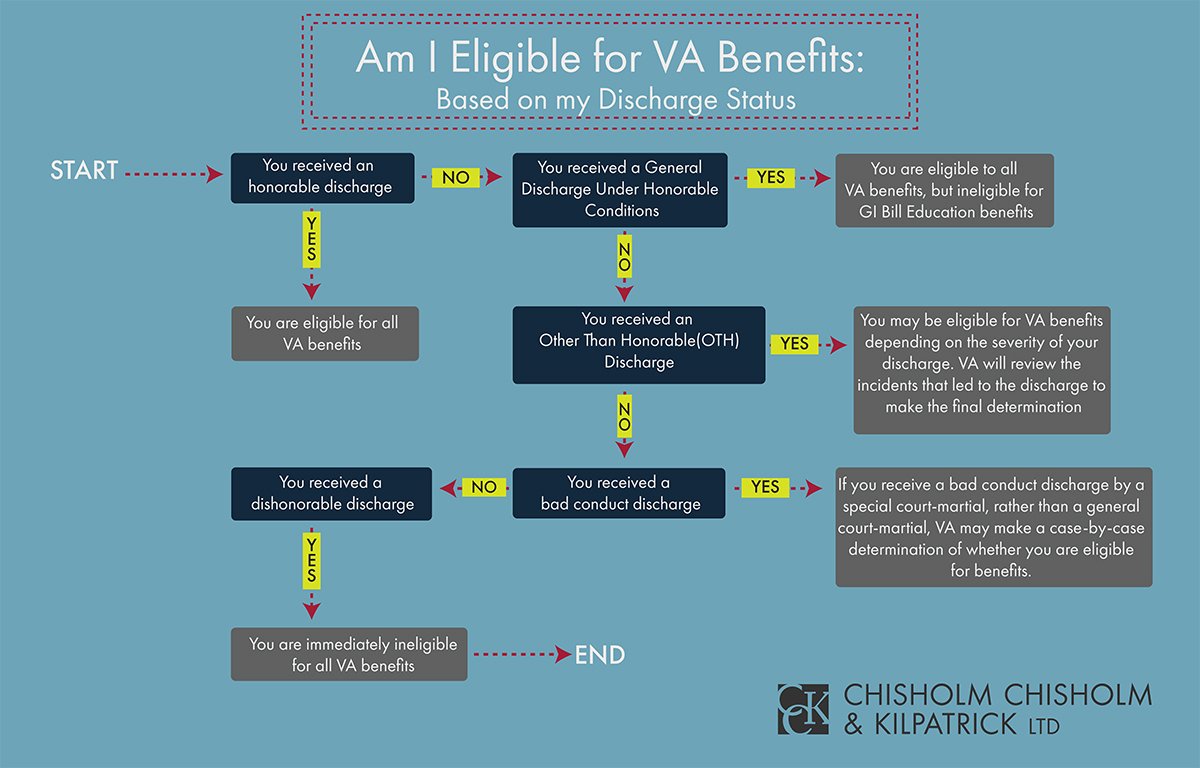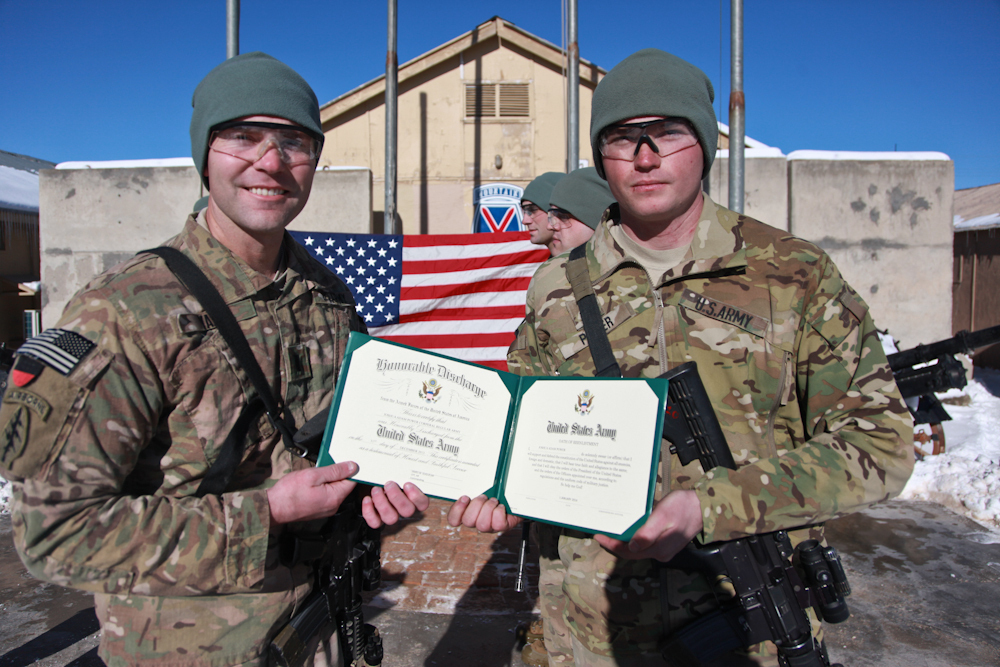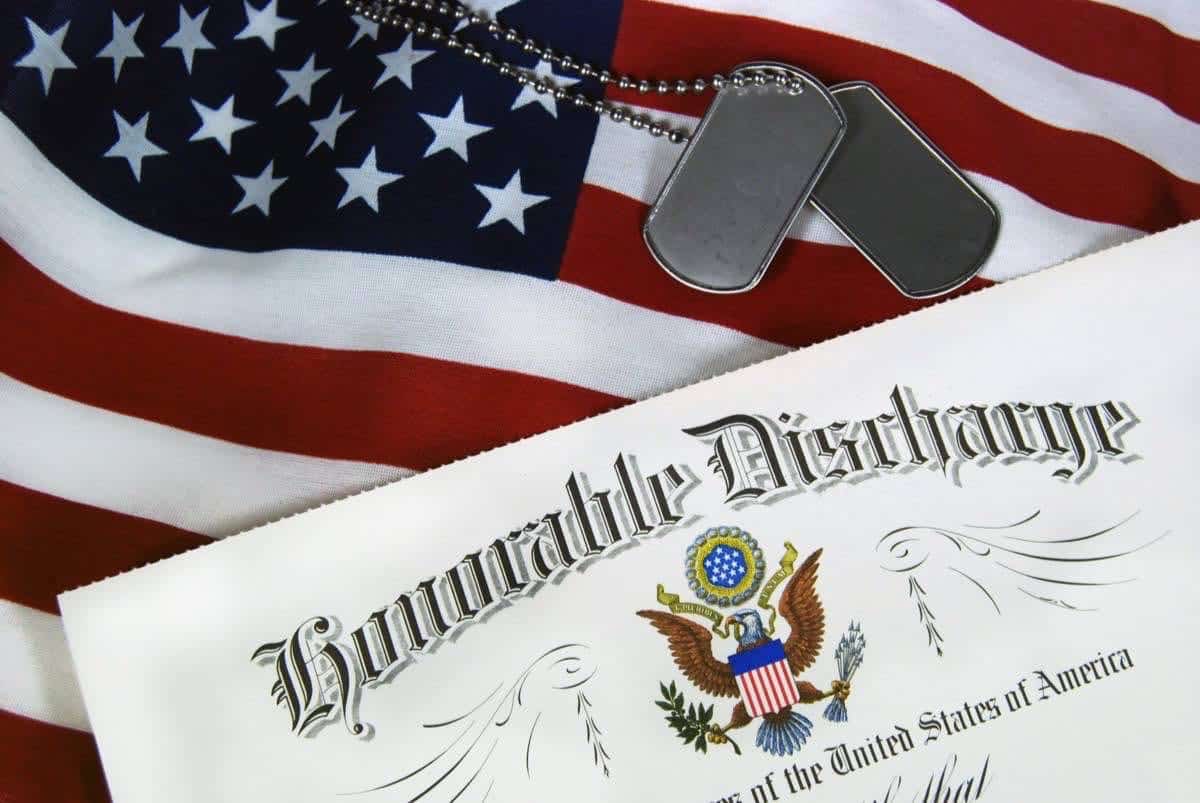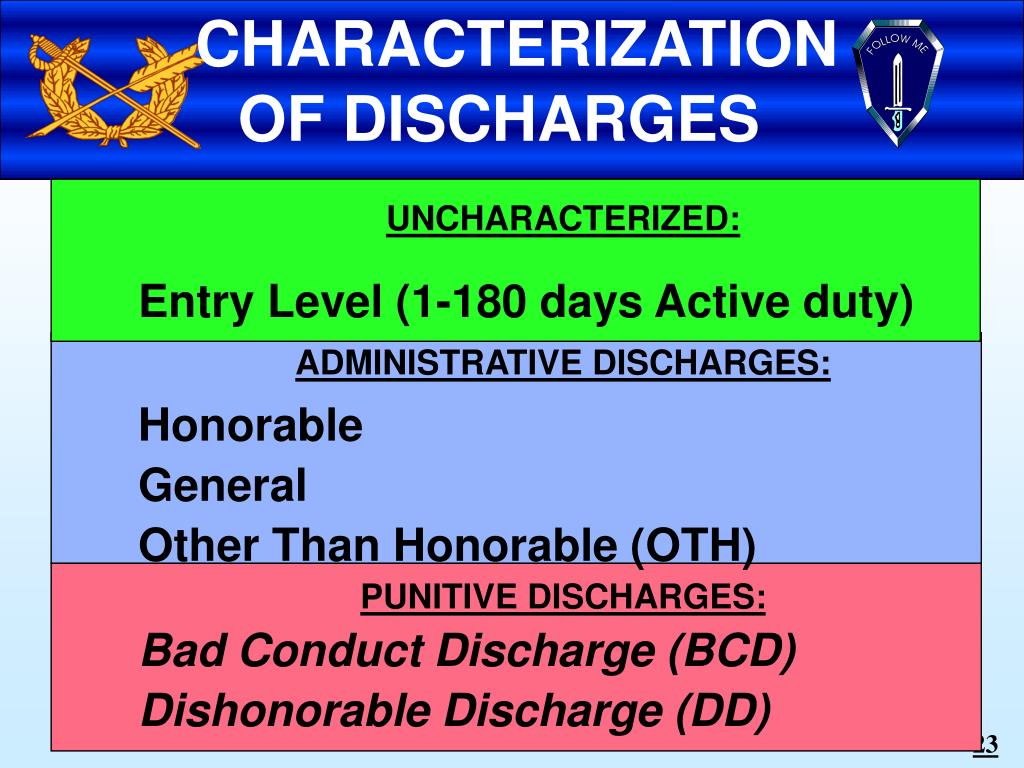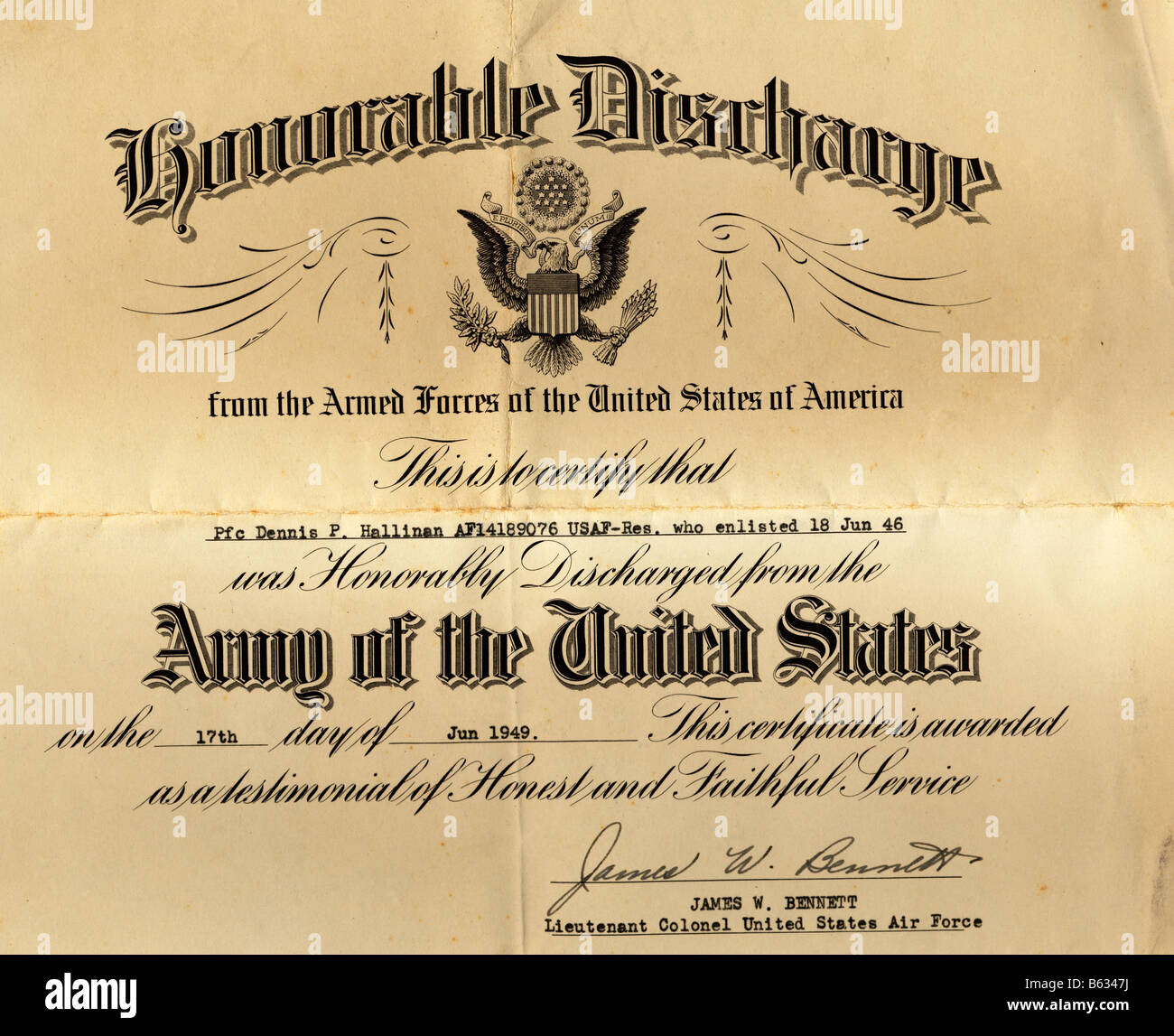General Discharge Army - In most circumstances, service members will receive a discharge under either dishonorable or honorable conditions upon leaving the armed forces. Administrative discharges may be voluntary or involuntary,. A general discharge means most of your service was ok, but some problems occurred. Punitive discharges are decided by courts martial. The 8 types of military discharge are divided into 2 distinct categories: Typically, this discharge comes after nonpunitive corrections were not successful in changing. A general discharge is an administrative discharge for those who served with faith but ran into some difficulties. General discharges—more formally referred to as a general (under honorable conditions)—are given to service members who engaged in minor to moderate misconduct, or performed satisfactorily but failed to meet performance. This is issued when a person shows a pattern of minor misconduct or fails to complete the original service. The following sections explore types of military discharge that fall within.
The 8 types of military discharge are divided into 2 distinct categories: In most circumstances, service members will receive a discharge under either dishonorable or honorable conditions upon leaving the armed forces. A general discharge is an administrative discharge for those who served with faith but ran into some difficulties. The following sections explore types of military discharge that fall within. Typically, this discharge comes after nonpunitive corrections were not successful in changing. A general discharge means most of your service was ok, but some problems occurred. Administrative discharges may be voluntary or involuntary,. General discharges—more formally referred to as a general (under honorable conditions)—are given to service members who engaged in minor to moderate misconduct, or performed satisfactorily but failed to meet performance. Punitive discharges are decided by courts martial. This is issued when a person shows a pattern of minor misconduct or fails to complete the original service.
This is issued when a person shows a pattern of minor misconduct or fails to complete the original service. In most circumstances, service members will receive a discharge under either dishonorable or honorable conditions upon leaving the armed forces. Punitive discharges are decided by courts martial. General discharges—more formally referred to as a general (under honorable conditions)—are given to service members who engaged in minor to moderate misconduct, or performed satisfactorily but failed to meet performance. The 8 types of military discharge are divided into 2 distinct categories: The following sections explore types of military discharge that fall within. Administrative discharges may be voluntary or involuntary,. A general discharge means most of your service was ok, but some problems occurred. A general discharge is an administrative discharge for those who served with faith but ran into some difficulties. Typically, this discharge comes after nonpunitive corrections were not successful in changing.
Chapter 5 11 Discharge Army Top Defense Systems
General discharges—more formally referred to as a general (under honorable conditions)—are given to service members who engaged in minor to moderate misconduct, or performed satisfactorily but failed to meet performance. In most circumstances, service members will receive a discharge under either dishonorable or honorable conditions upon leaving the armed forces. Typically, this discharge comes after nonpunitive corrections were not successful.
Types of Army discharges YouTube
This is issued when a person shows a pattern of minor misconduct or fails to complete the original service. A general discharge means most of your service was ok, but some problems occurred. The following sections explore types of military discharge that fall within. In most circumstances, service members will receive a discharge under either dishonorable or honorable conditions upon.
Military Discharges And Benefits Chart
The 8 types of military discharge are divided into 2 distinct categories: Administrative discharges may be voluntary or involuntary,. A general discharge is an administrative discharge for those who served with faith but ran into some difficulties. Punitive discharges are decided by courts martial. A general discharge means most of your service was ok, but some problems occurred.
General Discharge US Army Military Certificates, Medals and More HQ
Punitive discharges are decided by courts martial. A general discharge means most of your service was ok, but some problems occurred. General discharges—more formally referred to as a general (under honorable conditions)—are given to service members who engaged in minor to moderate misconduct, or performed satisfactorily but failed to meet performance. The following sections explore types of military discharge that.
8 Types of Military Discharge Benefits & Consequences Explained
Punitive discharges are decided by courts martial. This is issued when a person shows a pattern of minor misconduct or fails to complete the original service. In most circumstances, service members will receive a discharge under either dishonorable or honorable conditions upon leaving the armed forces. The 8 types of military discharge are divided into 2 distinct categories: A general.
General Discharge Operation Military Kids
The 8 types of military discharge are divided into 2 distinct categories: General discharges—more formally referred to as a general (under honorable conditions)—are given to service members who engaged in minor to moderate misconduct, or performed satisfactorily but failed to meet performance. This is issued when a person shows a pattern of minor misconduct or fails to complete the original.
Types of Military Discharges Understand Discharge Ratings
A general discharge is an administrative discharge for those who served with faith but ran into some difficulties. Administrative discharges may be voluntary or involuntary,. The 8 types of military discharge are divided into 2 distinct categories: This is issued when a person shows a pattern of minor misconduct or fails to complete the original service. The following sections explore.
Army Chapter 18 Discharge Benefits Army Military
This is issued when a person shows a pattern of minor misconduct or fails to complete the original service. A general discharge is an administrative discharge for those who served with faith but ran into some difficulties. Typically, this discharge comes after nonpunitive corrections were not successful in changing. General discharges—more formally referred to as a general (under honorable conditions)—are.
What Is A General Discharge From The Military? YouTube
The following sections explore types of military discharge that fall within. This is issued when a person shows a pattern of minor misconduct or fails to complete the original service. In most circumstances, service members will receive a discharge under either dishonorable or honorable conditions upon leaving the armed forces. A general discharge is an administrative discharge for those who.
United States Army Honorable Discharge document Stock Photo 20967510
The following sections explore types of military discharge that fall within. Typically, this discharge comes after nonpunitive corrections were not successful in changing. Punitive discharges are decided by courts martial. In most circumstances, service members will receive a discharge under either dishonorable or honorable conditions upon leaving the armed forces. This is issued when a person shows a pattern of.
A General Discharge Is An Administrative Discharge For Those Who Served With Faith But Ran Into Some Difficulties.
A general discharge means most of your service was ok, but some problems occurred. The 8 types of military discharge are divided into 2 distinct categories: Punitive discharges are decided by courts martial. In most circumstances, service members will receive a discharge under either dishonorable or honorable conditions upon leaving the armed forces.
Administrative Discharges May Be Voluntary Or Involuntary,.
Typically, this discharge comes after nonpunitive corrections were not successful in changing. General discharges—more formally referred to as a general (under honorable conditions)—are given to service members who engaged in minor to moderate misconduct, or performed satisfactorily but failed to meet performance. This is issued when a person shows a pattern of minor misconduct or fails to complete the original service. The following sections explore types of military discharge that fall within.
